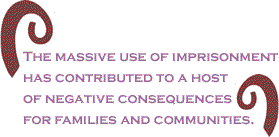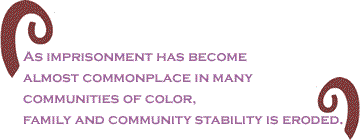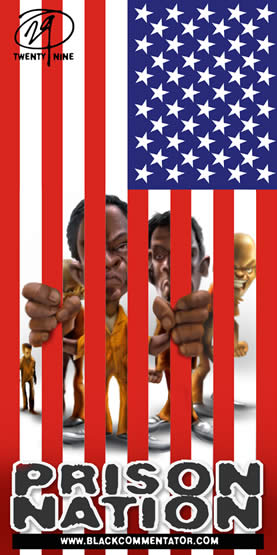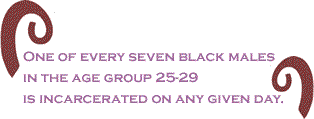
|
|||||||||||||||||||||
|
The following “call to action” was issued by the National Religious Affairs Association of the National Association of Blacks in Criminal Justice (NABCJ) in conjunction with Justice Sunday, January 18, 2004. The National Religious Affairs Association is comprised of 16 religious denominations, linked through the National Black Church Task Force on Crime and Criminal Justice. As a result of thirty years of change in social and criminal justice policy, the use of imprisonment in the United States has reached world record levels. The impact of incarceration has been borne most directly by racial and ethnic minorities. African Americans and Latinos constitute more than three-fifths of the nearly two million Americans in prison and jail. The causes of disproportionate imprisonment are complex. Root causes of disproportionate crime rates for certain offenses include poverty, inadequate education, and economic disadvantage. Also, while there is only limited data on Latinos, research demonstrates that African Americans are treated more harshly than their similarly-situated white counterparts at each stage of the criminal justice process.
Currently, more than 875,000 African Americans and 300,000 Latinos are incarcerated nationally; more than half of each group in state and federal prisons are serving time for a non-violent drug or property offense. One of every seven black males in the age group 25-29 is incarcerated on any given day, as well as 1 in 24 Hispanic males. While the overall figures for black and Latina women are lower, the number of women in prison has been rising at nearly double the rate for men since 1980. The large-scale use of imprisonment has not only had a dramatic impact on the life prospects of prisoners, but has also led to repercussions that extend to prisoners' families and communities. As imprisonment has become almost commonplace in many communities of color, family and community stability is eroded, with significant implications for the next generation of children. These effects include:

While crime and drug abuse are issues of concern in communities of color, as in other communities, the massive use of imprisonment as a response to those problems has resulted in a distortion of priorities and has contributed to a host of negative consequences for families and communities. Therefore, we call on policymakers, community leaders, and the public to develop more constructive solutions to crime and substance abuse. We encourage a national dialogue and action designed to: reconsider sentencing, drug, and imprisonment policies; examine the role of community and religious organizations in responding to these problems; and empower communities by providing resources that enable them to build on the strengths of individuals and families. For
more information, contact [email protected] |
February
12,
2004 |
|||||||||
|
|||||||||
|
|
|||||||||
| Printer Friendly Version | |||||||||
 |
|||||||||
| |
|||||||||
| |
|||||||||



























